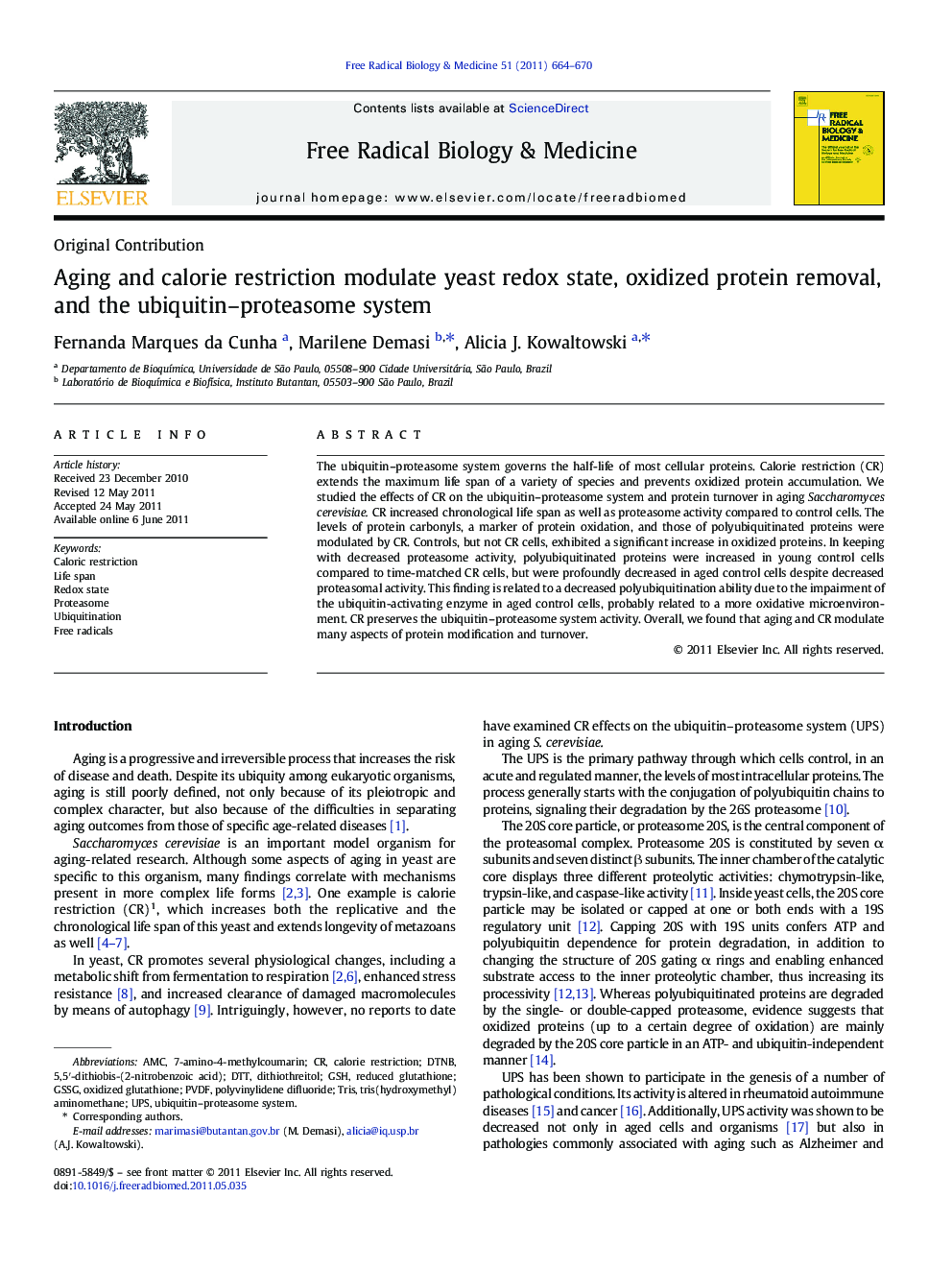| Article ID | Journal | Published Year | Pages | File Type |
|---|---|---|---|---|
| 10738016 | Free Radical Biology and Medicine | 2011 | 7 Pages |
Abstract
The ubiquitin-proteasome system governs the half-life of most cellular proteins. Calorie restriction (CR) extends the maximum life span of a variety of species and prevents oxidized protein accumulation. We studied the effects of CR on the ubiquitin-proteasome system and protein turnover in aging Saccharomyces cerevisiae. CR increased chronological life span as well as proteasome activity compared to control cells. The levels of protein carbonyls, a marker of protein oxidation, and those of polyubiquitinated proteins were modulated by CR. Controls, but not CR cells, exhibited a significant increase in oxidized proteins. In keeping with decreased proteasome activity, polyubiquitinated proteins were increased in young control cells compared to time-matched CR cells, but were profoundly decreased in aged control cells despite decreased proteasomal activity. This finding is related to a decreased polyubiquitination ability due to the impairment of the ubiquitin-activating enzyme in aged control cells, probably related to a more oxidative microenvironment. CR preserves the ubiquitin-proteasome system activity. Overall, we found that aging and CR modulate many aspects of protein modification and turnover.
Keywords
PVDFTRISDTTGSHAmCDTNBGSSG5,5′-dithiobis-(2-nitrobenzoic acid)7-amino-4-methylcoumarinTris(hydroxymethyl)aminomethaneRedox statepolyvinylidene difluoridedithiothreitolFree radicalsubiquitin–proteasome systemLife spancaloric restrictioncalorie restrictionProteasomereduced glutathioneoxidized glutathioneUPSubiquitination
Related Topics
Life Sciences
Biochemistry, Genetics and Molecular Biology
Ageing
Authors
Fernanda Marques da Cunha, Marilene Demasi, Alicia J. Kowaltowski,
